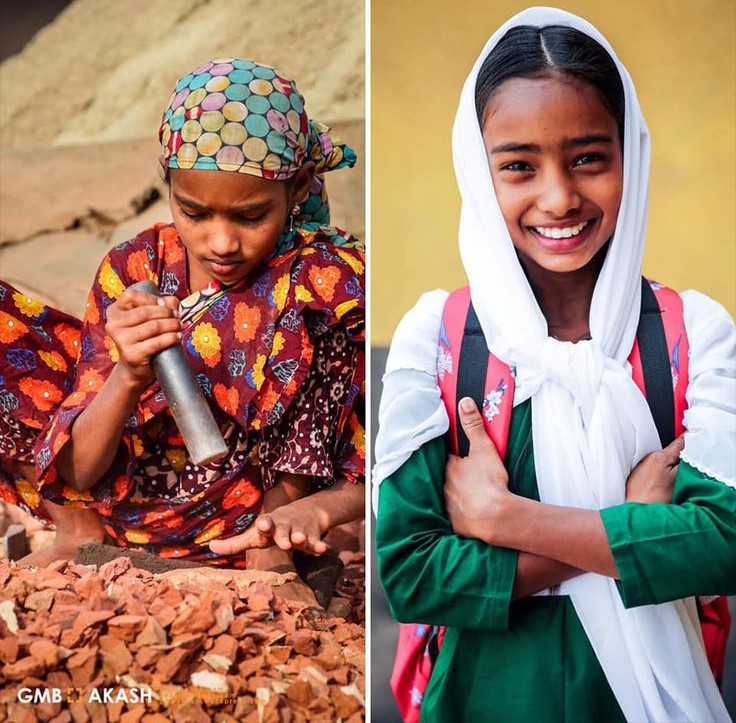
Suraksha Nepal is a non – profit organization which was registered at District Administration Office of Saptari in 2018. The organization is located at Rajbiraj-05, the headquarter of Saptari district of Madhesh province Nepal.
We have been focusing and educating the underprivileged citizens in a number of ways in order to bring a dignified life for them. As a non – profit organization, we ensure that underprivileged citizens are satisfied through numerous ways. In order to bring equality, happiness and dignity especially among underprivileged childrens, youths, handicapped, old age. we are empowering them through various effective programmes like education, training, awareness and other possible ways as well. Therefore, we are endeavouring our mission on the related field.
The day when we began promoting underprivileged citizens, we noticed that such citizens need extensive boost for their dignified and informative life. Since then, we broaden our mechanisms and proceeded towards their desires and the emptiness they were moving through. A large number of girls in a number of educational institutions have already been trained in a way that they can protect themselves. Our mission towards girls’ safety haven’t been accomplished and therefore, we are still working in this regard. Apart from this, most women were also trained in a manner of making several food items which became a boon for them because they are generating a good amount of money by selling food items which had they had been trained to prepare. In the last two years, we observed a revolutionary change, especially in the women of rural areas. While working in the field, we observed huge number of kids who were not being sent to school by their guardians. Due to guardians’ illiteracy in the rural areas, the concerned kids were forced to stay in home. Immediately after knowing such evils, we stimulated such guardians and their kids through various methods. Now, they are happy and have hope of bright future for their childrens.
Suraksha Nepal plays a crucial role in driving positive change within communities through various strategic functions:
1.Facilitator/Organizer/Mobilizer: Suraksha Nepal adopts a collaborative approach, steering clear of duplicating existing governmental structures. Instead, it serves as a catalyst, working closely with communities to organize and mobilize them towards common objectives. By harnessing local resources and empowering community members, it fosters sustainable development from within.
2.Linkage/Bridge Builder: Acting as a vital link between government agencies and communities, Suraksha Nepal fosters understanding and cooperation on both sides. Recognizing the importance of mutual awareness of roles and responsibilities, it endeavors to enlighten stakeholders. Through effective communication and mediation, it strives to create enduring partnerships that benefit children and communities alike.
3.Capacity Builder: Suraksha Nepal invests in enhancing the capabilities of communities and service providers, including Village Development Committees (VDCs), wards, and agency staff. Through targeted training and education, it equips them with the knowledge and skills to address issues such as child labor and universal education. By raising awareness of the detrimental effects of child labor, it empowers stakeholders to take action, ensuring the sustainability of programs and activities.
4.Advocator: With a steadfast commitment to child rights, Suraksha Nepal serves as a vocal advocate at various levels, from the grassroots to the national stage. Drawing from its extensive experience, it champions policy changes aimed at enhancing teacher accountability, promoting year-round student enrollment, streamlining administrative procedures, increasing female teacher representation, and reducing hidden educational costs. Through advocacy efforts, it strives to create an enabling environment for children’s rights to be protected and fulfilled.
5.Promoter: Suraksha Nepal acts as a beacon for exemplary practices, endorsing initiatives that demonstrate positive outcomes. It actively shares and promotes effective strategies, processes, and events, advocating for their replication in other contexts. Additionally, it embraces a culture of learning, drawing insights from diverse institutional experiences and adapting them to local contexts for maximum impact. Through promotion and adaptation, it contributes to the continuous improvement of interventions aimed at advancing child welfare and community development.